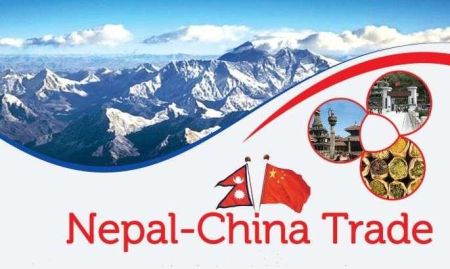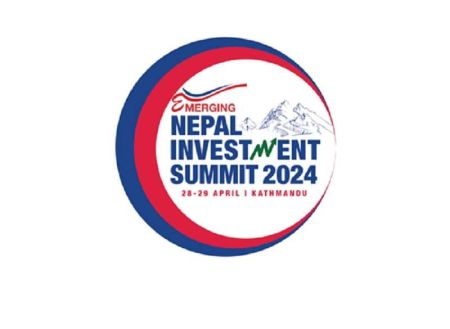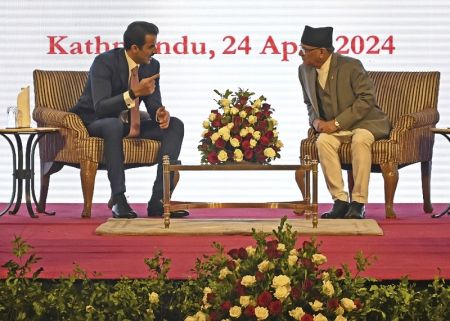--By Niranjan Phuyal
During his visit lecture at the Kathmandu University School of Management (KUSOM), Prof. Gautam Vora, from the University of New Mexico, had suggested MBA students to prepare a business project or vision during their studies and kick off it as an enterprise after graduation. While advising so, he presented an example followed by some universities in the developed countries. He said that in these universities the main aim of MBA students is to make very renowned business projects so that they can sell their shares to general public at premium rate. Prof. Vora claimed that this creates a good amount of capital while making students successful entrepreneur in life. However, he added that only two out of ten students become successful in doing so. But these ‘two out of ten’ form the basis of entrepreneurship development in such countries and their enterprises drive the whole economy. Few billionaires have evolved from millions of such entrepreneurs. The basic condition for these developments to happen in a nation is the availability of efficient capital market that can create fair value for the companies.
In the global capital market, there are different forms of IPO methods like fixed price, open offer, Dutch auction, book building method, etc. Mostly used are Dutch auction and the book building process. Each of these methods has its own pros and cons but their ultimate goal is to make the capital market fair and efficient so as to ensure smooth flow of capital to the entrepreneurs. Nepal follows the fixed price method where the price of the shares is fixed as per existing regulations and offered to the general public. This method is prescribed in the Securities Registration and Issue Regulation, 2065. The Securities Allotment Guidelines 2068 of Securities Board of Nepal (SEBON) describes the method for allotting shares. But the concern here is whether such regulations are efficient enough to ensure smooth flow of capital in the economy? Can students, who are graduating, be motivated for entrepreneurship development and thereby create basis for the country’s economic development?
Although very few in number, successful entrepreneurs are increasing in Nepal each year. But such enterprises are not caring about the capital market, which would have evaluated their worth. As an emerging and relatively very small capital market, legal provisions in Nepali primary market allows the companies to issue shares at par value or up to net worth per share. In general practice shares are issued at par value. Some successful entrepreneurs are reluctant to distribute their net worth to the public by issuing shares at par. In some cases companies that are successfully running may not even need additional capital and thereby totally rule out the possibility of issuing IPOs. It is time to create new regulations by modifying the existing ones so that they act as catalyst to promote investment environment in the country.
The first step could be the introduction of book building method of IPO. Many researchers have suggested that book building results in better price discovery than the fixed price method. In this process the underwriters or issue managers interact with different market participants and try to fix a fair price of the share. Additionally, the shares could be auctioned at a fair price range determined from the discovered price. Allotment could be done from the higher price and the minimum price at which the last share sold would be the cost price for all the shares. This could create capital amount as well as reserve for the company but this value would be created only if enough demand is created among the general people by putting up better performance track record and putting up better prospects for the company. However, before this arrangement is brought into action, the capacity of current underwriters and issue managers should be strengthened.
Secondly, ‘Listing by Introduction’ could be a better alternative for companies that are already established but have not yet opted for IPOs. This method is used in the secondary market of many countries. In this process established companies enlist their shares in the secondary market without going for IPO. Existing promoters sell certain portion of their shares to general public through the secondary market. But before doing so company and existing promoters are required to satisfy very strict conditions set by the regulators. This method is very much helpful to convert family owned business into public companies. If this is allowed in Nepal, definitely it will be a very good incentive for the entrepreneurs as they can create their value according to the general public’s demand. On the regulators part, attention should be taken while setting conditions as the supply side of the share is only one and millions could make demand. Additionally, the asymmetric information in the market can inflate the fair value of the shares.
Present situation of Nepal’s capital market seems to be gaining investors’ confidence. Many new investors are entering into the market. This could be an opportunity for the policy makers to create entrepreneurship culture among the youths. If we go forward with the same structures and policies, this confidence may not be sustained. Capital market could be an easy as well as less costly medium for creating capital.Therefore, the concerned policy makers should make efforts to create productive entrepreneurship environment in the country.
The writer is Assistant Manager at NEPSE. He is a part-time faculty holder at KUSOM.





















